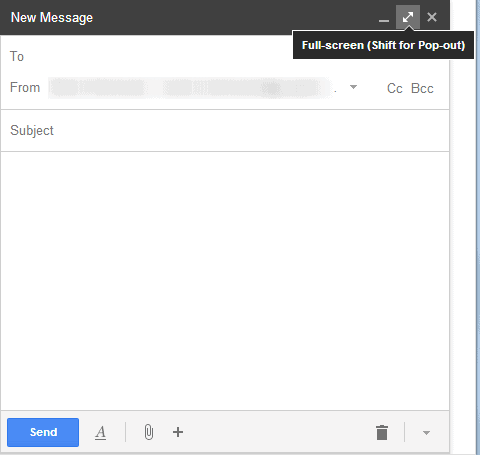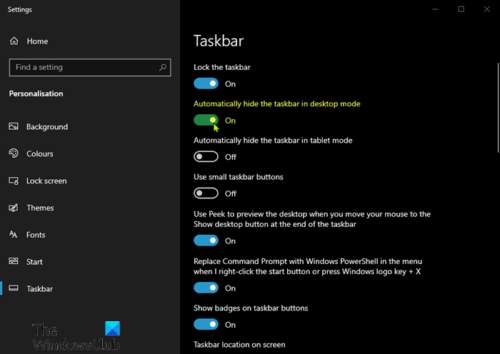
#Qt full screen window software
We believe in the Free Software movement where using software comes with certain rights, but also certain obligations. Ĭheck out which components are available under the different open source models in the Qt Product Map. Qt also ships with third party open source components that might require respective licensing compliancy, if used.
#Qt full screen window license
Please note that there are parts of Qt that are only provided under GPL for open source users that will require you to license your application under a GPL compatible license. This is the primary open source Qt license, which covers the majority of Qt modules. LGPL – Any modification to a Qt component covered by the GNU Lesser General Public License must be contributed back to the community. Your users are granted rights founded on the four freedoms of the GNU General Public License.
#Qt full screen window full
GPL – All users have the rights to obtain, modify and redistribute the full source code of your application. Example program: // Using SDL2 to create an application window #include "SDL.When selecting an open source license for your project, you contribute to free and open source software development by using Qt under any of the following licenses: LGPL version 3, GPL version 2 and GPL version 3.īasic Premises of the Qt Open Source Model This function is available since SDL 2.0.0. This limitation may be removed in a future version of SDL. On non-Apple devices, SDL requires you to either not link to the Vulkan loader or link to a dynamic library version. If SDL_WINDOW_METAL is specified on an OS that does not support Metal, SDL_CreateWindow() will fail. If SDL_WINDOW_VULKAN is specified and there isn't a working Vulkan driver, SDL_CreateWindow() will fail because SDL_Vulkan_LoadLibrary() will fail. If the window is created with any of the SDL_WINDOW_OPENGL or SDL_WINDOW_VULKAN flags, then the corresponding LoadLibrary function ( SDL_GL_LoadLibrary or SDL_Vulkan_LoadLibrary) is called and the corresponding UnloadLibrary function is called by SDL_DestroyWindow(). Window size is actually limited to 16384 x 16384 for all platforms at window creation. If the window is set fullscreen, the width and height parameters w and h will not be used. Note that when this flag is set, the drawable size can vary after the window is created and should be queried after major window events such as when the window is resized or moved between displays.

Use SDL_GetWindowSize() to query the client area's size in screen coordinates, and SDL_GL_GetDrawableSize() or SDL_GetRendererOutputSize() to query the drawable size in pixels. If the window is created with the SDL_WINDOW_ALLOW_HIGHDPI flag, its size in pixels may differ from its size in screen coordinates on platforms with high-DPI support (e.g. On Apple's macOS, you must set the NSHighResolutionCapable ist property to YES, otherwise you will not receive a High-DPI OpenGL canvas. SDL_WINDOW_SHOWN may be queried later using SDL_GetWindowFlags(). The SDL_Window is implicitly shown if SDL_WINDOW_HIDDEN is not set. SDL_WINDOW_SHOWN is ignored by SDL_CreateWindow(). SDL_WINDOW_ALLOW_HIGHDPI: window should be created in high-DPI mode if supported (>= SDL 2.0.1).SDL_WINDOW_INPUT_GRABBED: window has grabbed input focus.SDL_WINDOW_MAXIMIZED: window is maximized.SDL_WINDOW_MINIMIZED: window is minimized.SDL_WINDOW_RESIZABLE: window can be resized.SDL_WINDOW_BORDERLESS: no window decoration.SDL_WINDOW_HIDDEN: window is not visible.SDL_WINDOW_METAL: window usable with a Metal instance.



 0 kommentar(er)
0 kommentar(er)
